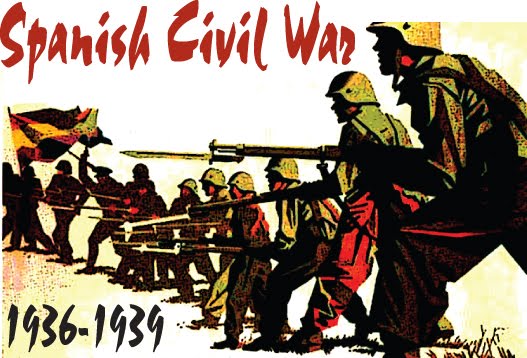Anarchists played a central role in the fight against Franco
Anarchism has historically gained the most support and influence in Spain, especially in the seventy or so years before Francisco Franco's victory in the Spanish Civil War of 1936-1939.
There were several variants of anarchism in Spain: the peasant anarchism in the countryside of Andalusia; urban anarcho-syndicalism in Catalonia, particularly its capital Barcelona; and what is sometimes called "pure" anarchism in other cities such as Zaragoza. However, these were complementary trajectories, and shared a great deal of ideological similarities.
Early on, the success of the anarchist movement was sporadic. Anarchists would organize a strike and ranks would swell. Usually, repression by police reduced the numbers again, but at the same time further radicalized many members. This cycle helped lead to an era of mutual violence at the beginning of the 20th century, in which armed anarchists and pistoleros, armed men paid by company owners, were both responsible for political assassinations.
In the 20th century, this violence began to fade, and the movement gained speed with the rise of anarcho-syndicalism and the creation of the huge libertarian union, the CNT. General strikes became common, and large portions of the Spanish working class adopted anarchist ideas. The FAI was created as a purely anarchist association, with the intention of keeping the CNT focused on the principles of anarchism.
Anarchists played a central role in the fight against Franco during the Spanish Civil War. At the same time, a far-reaching social revolution spread throughout Spain, where land and factories were collectivized and controlled by the workers. The revolution was virtually snuffed out towards the end of the civil war, by the communist/Stalinist controlled forces who wanted to ensure that the social model adopted in the Spanish Republic would be of their own choosing whilst proving to the western neoliberal democracies that communist Russia would not sponsor social revolutions unfriendly to the established social order. All remaining social reforms ended in 1939 with the victory of Franco, who had thousands of anarchists executed. Resistance to his rule never entirely died, with resilient militants participating in acts of sabotage and other direct action, and making several attempts on the ruler's life.
Their legacy remains important to this day, particularly to anarchists who look at their achievements as an historical precedent of anarchism's validity.
.jpg)